Ukraine war: Should we be worried about a gas supply crisis?
- Published
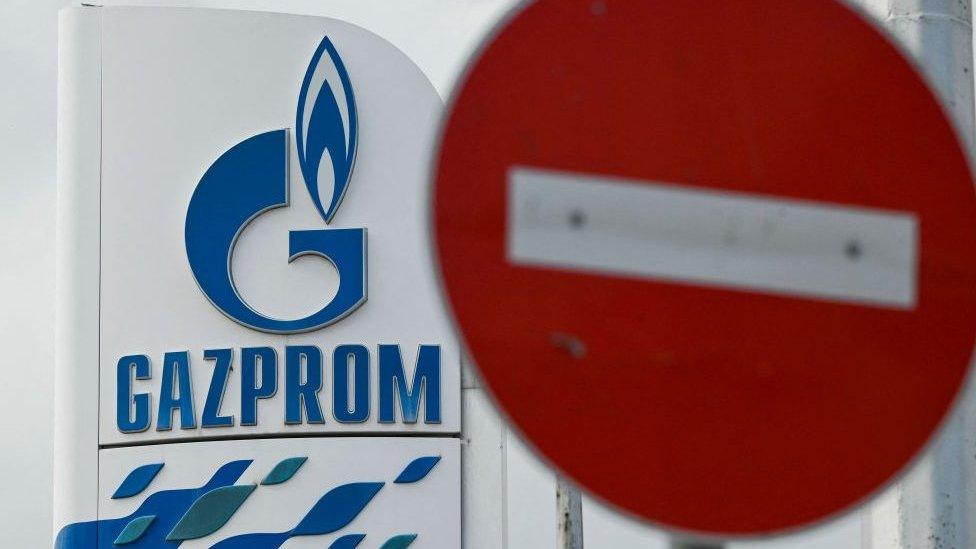
Russian energy giant Gazprom says it has halted gas exports to Poland and Bulgaria over the countries' refusal to pay for supplies in roubles - but how worried should we be?
Both Poland and Bulgaria were already planning not to renew their contracts with Gazprom, which expire at the end of the year. In Poland's case, it had been filling its stores of gas ahead of time, which provides some cushion, especially as we approach the summer lull in use of gas.
This escalation is real, and justified by the Kremlin on the basis of a refusal to pay for gas by changing money into roubles in Russian bank accounts.
But the additional impact of today's news should be containable.
Gas prices in the UK are well down on their record peaks of £5 per therm last month, at about £1.70. UK terminals have been flooded with liquefied natural gas (LNG) - over 100 tanker-loads so far this year - with the largest amount coming from the US.
But it can't be stored here, and much is being re-exported to the European Union (EU). Indeed, market contacts suggest that the export pipeline of gas from the UK to continental Europe is currently at the limits of its capacity.
These UK prices are still consistent with further rises in gas bills in October - perhaps of a few hundred pounds a year.
All that would change, of course, if these moves today are the first skirmishes in an escalating European energy crisis that could see Germany cut off from Russian gas in the next few months. That would send prices spiralling across Europe and lead to a crisis of supply.
There is some helpful ambiguity in what is termed "forcing buyers to pay for Russian gas in roubles".
"Various governments and companies stating 'we will not pay in roubles' therefore are not providing any clarity as to whether they will use the new payment process or not, which in turn means there is ambiguity over upcoming supply to other, larger, markets," says Tom Marzec-Manser, head of gas analytics at market information provider ICIS.
German firms are paying in euros that are then exchanged into roubles at a specific Russian bank. This arrangement allows all to continue the mutual gas trade dependence, but it is a precarious balance.
German ministers say that they are not afraid of paying the economic price to eliminate the "strategic mistake" of energy dependence on the Kremlin, but that they just cannot do it any time soon.
So the actions of the Kremlin through Gazprom need to be put in perspective.
It has cut off some supplies as a result of refusal to change the terms of payment, but notably this was to two countries which had already said their contracts with Gazprom would be allowed to expire this year.
As the conflict continues, and Germany ups the ante in terms of supplies of weapons to Ukraine, the real question is about the flow of gas from Russia to Germany, which continued uninterrupted even during the height of the Cold War.
This move is designed as a Kremlin shot across the bows of Europe's biggest economies.
While Germany, for example, has said it is willing to phase out Russian coal in the summer, and hinted Russian oil could follow over the next year, gas is another matter. Last week, Germany's finance minister told me it would be physically impossible to immediately phase out the 45% dependence of Germany on Russia for its gas.
- Published28 April 2022
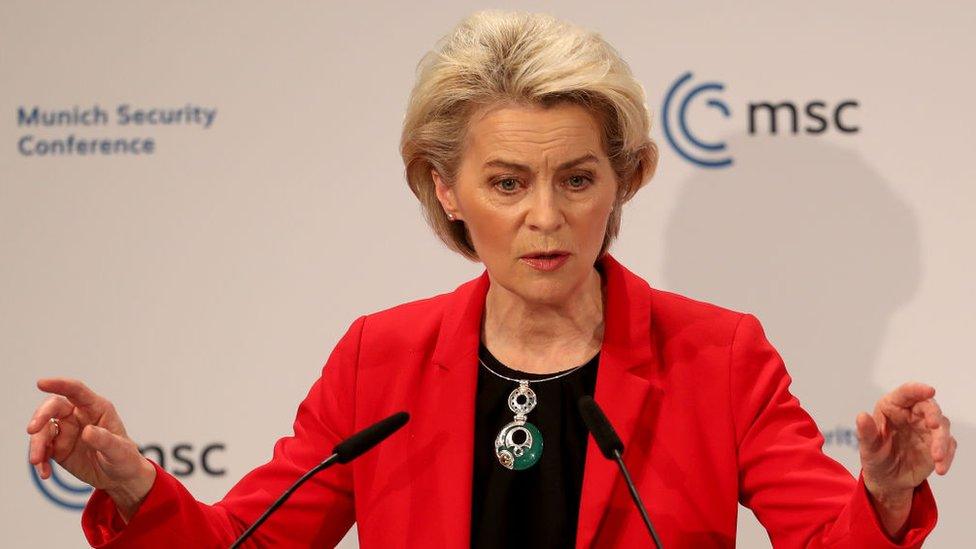
- Published27 April 2022
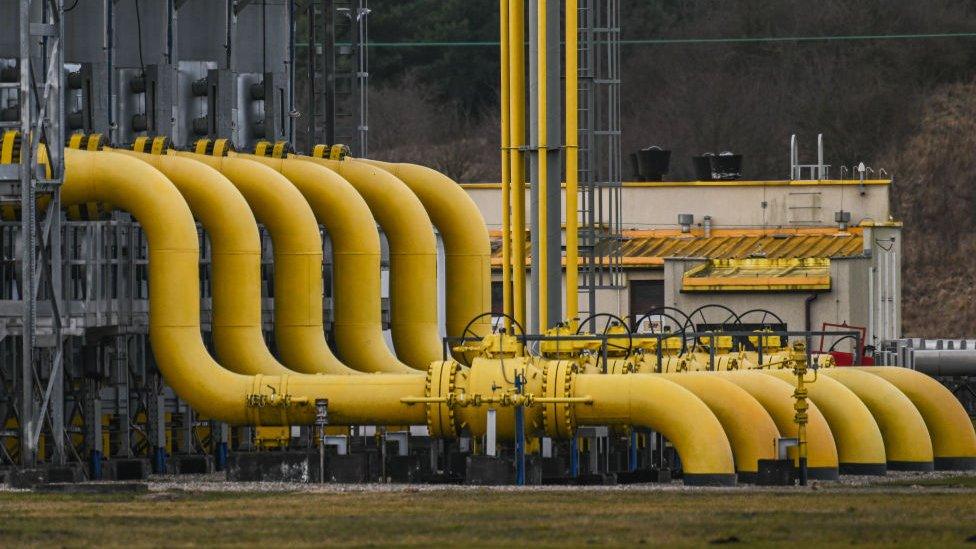
- Published26 January 2023
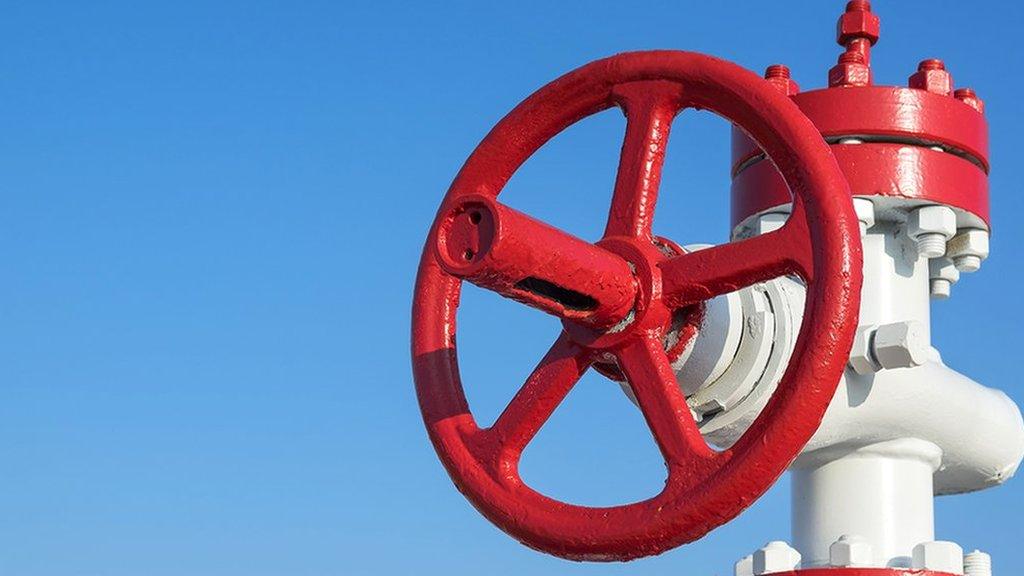
- Published20 April 2022
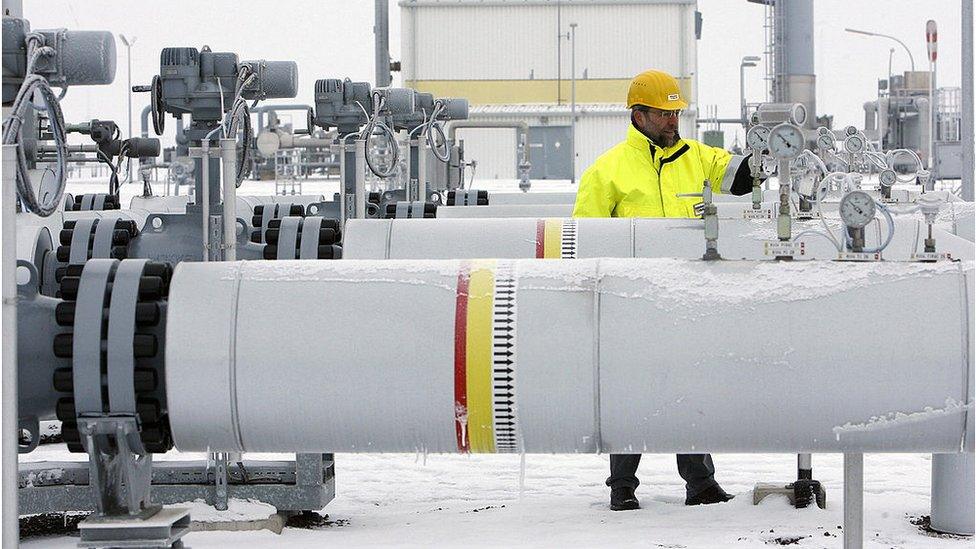
- Published31 March 2022

